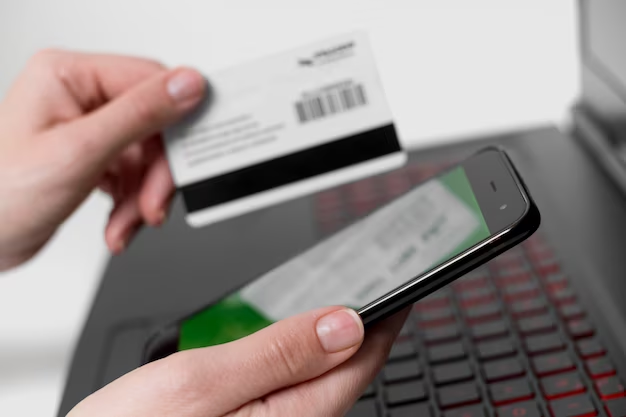In the array of personal financial tools, few are as ubiquitous and critical as the various cards we carry. From credit cards to ID cards like the Emirates ID, these small, plastic rectangles powerfully shape our financial status and identity. Understanding the role your cards play in your financial life is crucial for maintaining both fiscal responsibility and personal security.
The Influence of Credit Cards on Financial Status
Credit History and Score
Credit cards are not just a means of borrowing money—they’re also foundational to building a credit history. Each time you use your credit card, this transaction is reported to credit bureaus, which then affects your credit score. Having a credit card and consistently making timely payments can improve your credit score, offering you benefits such as lower loan interest rates and increased borrowing capacity. On the flip side, missed or late payments could damage your credit score, which can impede your ability to secure loans or even result in higher interest rates.
Budgeting and Spending
Credit cards also have a profound impact on your spending habits. With the convenience they offer, it’s easy to overspend and accumulate debt, potentially leading to financial strain. Conversely, savvy users leverage rewards programs and manage balances effectively to maximize the benefits without incurring heavy debts.

Managing ID Cards for Security and Identification
ID cards, including driver’s licenses and the Emirates ID, are fundamental to verifying your identity and legal status. They are necessary for everything from completing financial transactions to traveling internationally. Without proper ID cards, you could face significant hurdles in your daily life, including the inability to access certain services or encountering complications with law enforcement.
Here is a table summarizing the importance of ID cards:
| ID Card Type | Primary Use | Secondary Benefits |
|---|---|---|
| Driver’s License | Legal operation of a vehicle | Identification for in-country travel |
| Emirates ID | Identification in the UAE | Access to government services |
| Passport | International travel | Identification across borders |
Having valid, up-to-date ID cards ensures you’re always prepared for identification purposes, which is vital for maintaining a good standing legally and socially.
The Connection Between Cards and Personal Identity
Your cards are more than just physical items; they carry with them numbers and data that connect to your identity and financial activities. The numbers on a credit card, for example, are linked to your credit account, transactions, and ultimately your financial reliability. Similarly, identification numbers on your ID cards, such as the Emirates ID, are unique to you, holding key personal information and having implications on your legal status within a country.
Mirroring the importance of credit cards, ID cards must be managed with care. Loss, theft, or damage to these cards could compromise your personal information, potentially leading to identity theft or fraud. Keeping these cards secure is, therefore, an ongoing responsibility that demands attentiveness and precaution.

Strategies for Effective Card Management
Managing your cards effectively goes beyond mere possession; it involves strategic thinking and responsible usage. For credit cards, consider the following steps:
- Set up automatic payments to ensure you never miss a deadline, thus avoiding late fees and negative impacts on your credit score.
- Monitor your spending by setting a budget for credit card use and tracking transactions through mobile banking apps or finance tracking tools.
For ID cards, the key is to keep them updated and secure:
- Regularly check the expiration dates on your ID cards and set reminders to renew them in advance.
- Store ID cards in a safe place, and consider carrying photocopies or digital copies in your smartphone for convenience, while ensuring the actual cards are not easily accessible to avoid theft or loss.
By adhering to these strategies, you can protect your cards and the financial identity they represent. This will not only shield you from potential financial setbacks but also establish a foundation for a prosperous financial future.
Preventing Fraud and Safeguarding Personal Information
The digital age has heightened the risks associated with card information theft. To combat this, proactive measures should be taken:
- Sign up for fraud alerts with your bank or credit card issuer to be notified of any unusual activity.
- Review your card statements regularly and report any unauthorized transactions immediately.
For ID cards, especially ones with embedded chips like the Emirates ID, it’s critical to:
- Be cautious when photocopying or sharing your ID card information and only give it out when absolutely necessary.
- Invest in RFID-blocking wallets or cases, which can prevent malicious individuals from wireless skimming of your cards’ data.
Implementing these defenses ensures the sanctity of your personal information and your financial status, sparing you the time, money, and stress involved in rectifying identity theft or fraud.

Conclusion
By understanding how your various cards influence your financial status and taking careful measures to manage them properly, you can ensure they work to your advantage, rather than expose you to risk. Whether it’s a credit card that could sway your borrowing power or an ID card that certifies your personal identity, each card holds a weight that, when managed correctly, secures your financial well-being and peace of mind.
FAQ: How Can Your Cards Affect Your Financial Status?
Q: How significant is the impact of credit cards on my credit score?
A: The impact is considerable. Credit cards directly influence your credit history and score by reporting your borrowing activity to credit bureaus. Responsible credit card usage, including regular, on-time payments and keeping balances low, can strengthen your credit score. Conversely, missing payments or maxing out your cards can significantly lower your score.
Q: What should I do if I lose my ID card or credit card?
A: Act quickly to minimize any potential damage. For lost credit cards, contact your card issuer immediately to report the card as lost and request a replacement. For ID cards, report the loss to the appropriate authority, such as the Department of Motor Vehicles for a driver’s license or the local police for an Emirates ID. Then follow the steps to obtain a replacement as soon as possible, while monitoring for any fraudulent activities related to your lost card.
